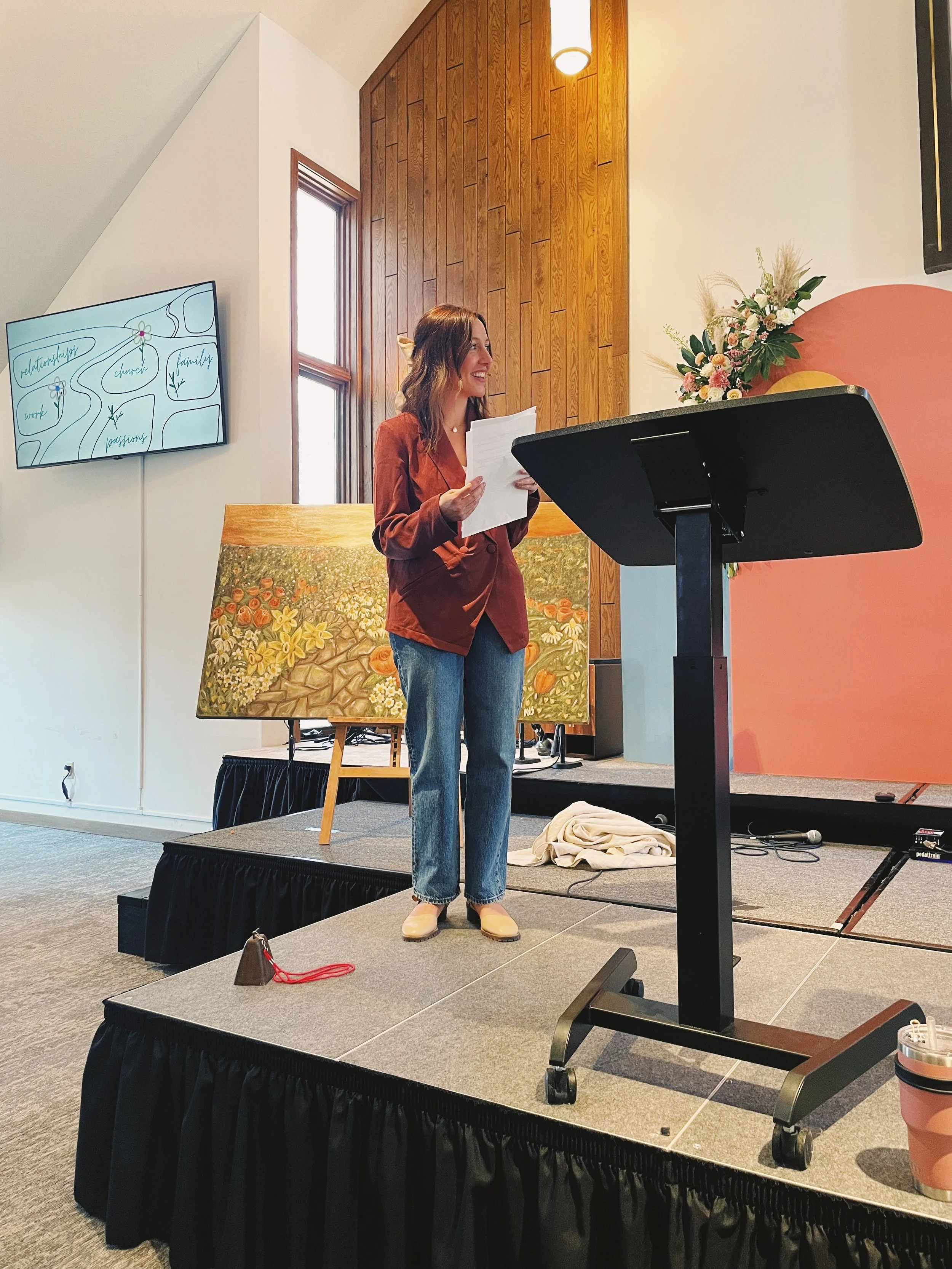A Love-Begotten Love: Transformed Into the Father's Image (1 John)
A true love for others is deeply rooted in the understanding of God’s love and how it played out in the sending of Jesus for us.
The greatest act of love ever displayed: God took a look at us, in all our sin and all of our condemnation-deserving behavior, and chose to send Jesus. Not to condemn us, but to save us from our sin. (John 4:16-17 NIV)
The way we know what true love is, is by looking at Jesus:
“This is how we know what love is: Jesus Christ laid down his life for us.” 1 John 3:10 NIV
I’d encouraged you to dig out your Bible and flip open to the book of 1 John. Give it a scan and see all the love-language jump off the page at you.
We are spurred along and encouraged in this beautiful book of the Bible to move forward in a love rooted in faith—knowing that deep and true belief comes forth in our actions.
God’s living and active Spirit works inside us—prompting us to move away from sin and towards love. After all, sin and love are antithetical to one another:
Sin is greed, lust, theft, and any other behavior that seeks to take at the expense of another. Sin has no understanding of God; it is idolatry which takes the glory of God and sets it as lesser than the ways of the world.
On the contrary, love is God’s way through-and-through. Love is behavior and mindset that seeks to give for another’s wellbeing, even at the expense of one’s self. To reiterate: living a life of true love is deeply rooted in an understanding of the love God gave to us through the person of Jesus.
As Christians, we seek to walk in love and not in sin. We watch this play out in our lives, and as we embrace our standing as children of God—saved by the selfless atonement of Jesus—we aim to keep God’s commands organically (and also by choice).
We don’t do this because we must, so much as we do it because we believe it’s the way of our loving heavenly Father. We let Gospel truth seep deeply into our souls, as we know that God’s generous ways set us free from the binds of sinful slavery that we so deserved. Keeping his commands helps us walk in the freedom that is ours as children of God. Check this bit out:
“In fact, this is love for God: to keep his commands. And his commands are not burdensome, for everyone born of God overcomes the world…” 1 John 5:3-4 NIV
As we fully embrace the sacrifice of our savior—and the ultimate love it put on display—we overcome sin and the defiling ways of the world. We move towards the purity that is so fitting for children of the Most High God.
This is why John can so boldly say that “no one who is born of God will continue to sin, because God’s seed remains in them; they cannot go on sinning, because they have been born of God.” 1 John 3:9 NIV
As the truth implants in our hearts, the fruit is love for another in the same manner with which God loved us.
As beautifully displayed as this reality is in the book of 1 John, we see it sprinkled elsewhere throughout the New Testament as well, as we are reminded that life with God isn’t a manner of living in fear, cowering as we keep his commands—but a manner of living enwrapped in His love. It’s a matter of letting God’s love cover us completely—as we are organically formed into his image from the inside out.*
“There is no fear in love. But perfect love drives our fear, because fear has to do with punishment. The one who fears is not made perfect in love. We love because he first loved us.” 1 John 4:18-19 NIV
Flipping a few pages back to the book of Romans 8, we see a beautiful theology of sonship displayed: As we embrace the life, death, and resurrection of Jesus—as the Spirit of God burrows deeply into our hearts—the result isn’t that we would live in the fear of misstepping according to the law, but on the contrary, that we would, by God’s Spirit, rest in the security of our adoption into God’s family.
We remember God’s way of love: to redeem the sinner and rescue him from his enslavement to death and ungodly practices. We walk in God’s way of love, according to the power of his Spirit at work within us, rooted in the faith of Christ and his sacrifice:
For those who are led by the Spirit of God are the children of God. The Spirit you received does not make you slaves, so that you live in fear again; rather, the Spirit you received brought about your adoptions to sonship. And by him we cry, “Abba, Father.” The Spirit himself testifies with our spirit that we are God’s children.” Romans 8:14-16 NIV
Life with God is about stepping into the light of his presence, confessing our sinfulness and need for a Savior, and in doing so, fully embracing our need for his selfless sacrifice. As we become aware of our dyer need, and his willingness to provide for it, we are prompted forward to love the world in a similar way.
May you be prompted forth in love today, deeply rooted in the faith of your selfless Savior.
—
*A bonus note on “fearing the Lord”: many times throughout the Bible, we are encouraged to fear the Lord, even being told that “fearing the Lord is the beginning of wisdom.” (Proverbs 1:7) At the same time, we are consistently spurred away from a mindset of fear, as we rest in God’s great love and power. How do we reconcile these two notions?
It might seem ironic, but if “fearing God” means revering Him and his ways in the utmost, may we be ever-so-grateful that his ways just so happen to be the ways of selfless love. We “fear” God in that we understand he holds the ultimate powers of both condemnation and salvation, and we revere his power to execute—and yet, as we dig further into our understanding of his character, we find deep rest seeing that he is good, merciful, and sacrificial in nature. The combination of fearing—or greatly revering— him, in conjunction with our understanding of his Loving Ways, leads to our ultimate rest in his power. Furthermore, it spurs us along to love others just like he does.












